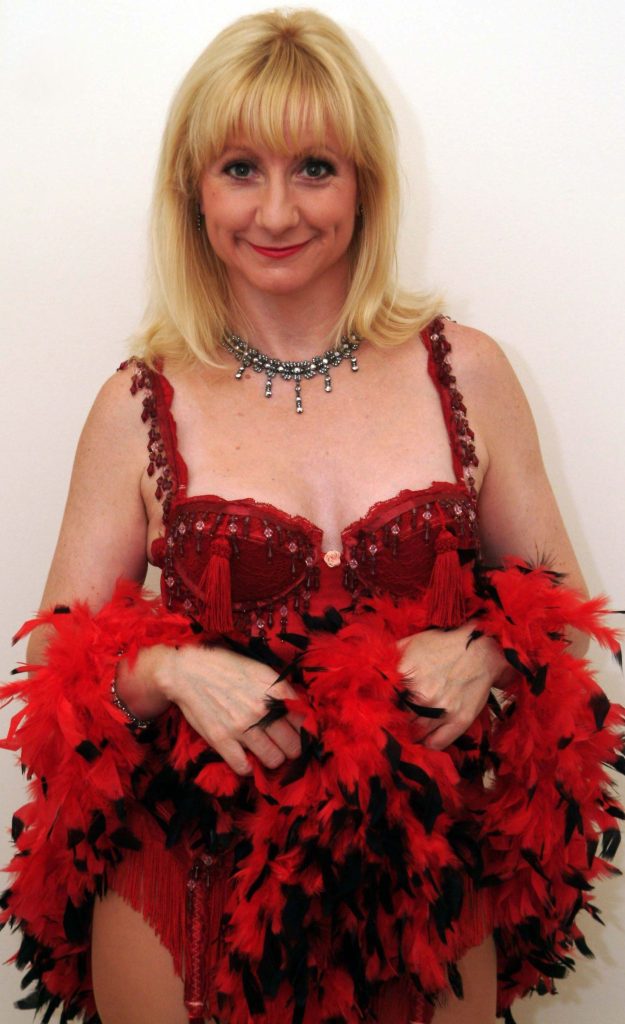A Tale of Two Tributes: One Hit, One Miss
The concept of a tribute show in cabaret is appealing to performers for a number of reasons.
First, and most obvious, would be love for the honoree and the wish to pay homage to them. It could be to shine a spotlight on elements of the life or works of the honoree that are not as well known as they deserve to be. Or, it might just come down to financial considerations; the name recognition of the honoree might attract a larger audience than the actual performer in the show.
Another would be a personal or professional connection between the singer and either a writer/icon or the works themselves. And still another reason would be that the material is well suited to the performer’s strengths.
All of these, even the last, are valid reasons to consider putting together such a presentation. But once decided, then the real work begins.
Not to be lost along the way are the voice and the story of the star of the evening. Whether by arrangements or storytelling, or song selection, or delivery, the performer will want to avoid being eclipsed by their subject matter. I recently saw two tribute shows that pointed up the glories and the pitfalls of tributes—one a triumphant and uniquely personal investigation of its subject; the other an honorable mention that never quite succeeded in its mission. Let’s start with the hit!
One Family Celebrates Another: Zechers and the Rodgers
Deborah Zecher and her son, Joshua Zecher-Ross, presented Family Matters: A Celebration of All Things Rodgers, Rodgers, & Guettel at Don’t Tell Mama. The Zecher family explores songs by Richard Rodgers (with words by Lorenz Hart, Oscar Hammerstein II, and Stephen Sondheim), his daughter Mary (with assists from Sondheim, Sheldon Harnick, and Marshall Barer), and his grandson Adam Guettel (writing all by himself). In spite of the gargantuan nature of the task they have chosen for themselves, the show is an entertaining, informative, funny, emotional and beautifully crafted success. It is directed with a sure hand by Lennie Watts, who sees to it that just enough information about the Rodgers clan and the Zecher clan is scattered throughout the songs to underscore the personal, professional and historical connections that exist between the three subjects and the two performers. The script is well written, and delivered with assurance, enthusiasm, and style by Zecher, stylishly accompanied and underscored by Zecher-Ross on piano, and sometimes voice.
The show opens with a medley that serves as a de facto overture for the night with a canny collection of songs related to music from The Sound of Music, Babes in Arms, Spring is Here, and State Fair; “Manhattan” (Richard Rodgers, Lorenz Hart, from Garrick Gaieties, 1925) follows quickly, confirming that Zecher’s vocal are a bit tentative at the start, but that situation actually proves charming in a medley from Once Upon a Mattress (Mary Rodgers, Barer). In “Baby Moon” (Guettel), Zecher’s connection to the lyric is obvious, and touching. Her voice at last warms up, proving she can sell a song with the best of them and knows how to tell a story with words and music on a hugely entertaining “Do I Hear a Waltz” (Richard Rodgers, Sondheim). Sticking with Sondheim (with Mary Rodgers), she romps through the bossa nova mirth and madness of “The Boy From…” (from The Mad Show), and while she forces a few of the lines and jokes a bit, she manages to garner much laughter and applause.
Mother and son charm the house with a pairing of “An Opening for a Princess” and “Happily Ever After” from Mattress; with his smooth, gentle sound and her more seasoned, rough-hewn vocals, I closed my eyes and imagined a duet between Kermit the Frog and Elaine Stritch—I mean that, of course, as high praise indeed. Then Zecher-Ross takes the spotlight solo for “If I Loved You” (from Carousel), “Love to Me” (from The Light in the Piazza), and “Yesterday I Loved You” (from Mattress) in an illuminating, beautifully magical bridging of three generations of artists that proves the highpoint of the show. Not to be outdone, Zecher follows with the emotional wallop of Guettel’s “How Glory Goes” (from Floyd Collins) sung with passion and power and not a hint of the earlier tentativeness. She made the often-problematic song completely her own.
By all measure, following these two show-stopping moments with another big, dramatic medley, should not work but somehow the utter beauty and glory of “Climb Every Mountain” (from The Sound of Music) and Migratory V (from Guettel’s Myths and Hymns) make them seem like the perfect companion piece. So much goodness is perhaps bound to stumble, and stumble it does with an ill-considered (and lengthy) sing-along to nine (yes, nine!) songs from The Sound of Music. The irresistible Cinderella medley that follows (sung just by mother and son) is much more on point. But my reservations were few and the pleasures to be had are many. This well-constructed, delightfully performed paean to one of the first families of the Broadway musical, is smashingly successful.
Presented at Don’t Tell Mama, 343 W. 46th St., NYC, April 8, 16, Oct. 27, Nov. 26, 2024.
An Attempt to Hear Gershwin at Its Purest and Most Natural
Downtown at Pangea, I visited Let’s Do It Again: The Songs and Love Affairs of George Gershwin, conceived, written, performed and directed by Lisa Faith Phillips with guest singer Deanna Kirk, and music director John Di Martino on piano. Both the stage and the singer are festooned with feather boas giving the hint of a early 20th century salon/ speakeasy. Phillips is on to something in setting the piece in the times the songs were written, and in choosing to center on the somewhat risqué romantic entanglements of the great George Gershwin. Stripping the songs of their subsequent legacy as cornerstones of the Great American Songbook and defining building blocks of the jazz world could make the audience hear the songs in a purer, more lighthearted way and give a glimpse at the effect they might have had at the time of their writing.
Presenting herself as a kind of ditzy gossip from a 1930s screwball comedy, Phillips delights in the tawdry, titillating “secrets” she shares with the audience and that energy is infectious. Di Martino’s accompaniment is in keeping with the concept when called for, and in another situation would be the ideal partner for the hijinks and the history.
Unfortunately, Phillips doesn’t seem to trust her ideas or her talent to just do the show. She calls in jazz vocalist Deanna Kirk to “take over” on most of the songs and sing them in a more contemporary manner; the anachronism and intrusion of her presence proves fatal to the promise of the premise. Too often, Phillips’s on-stage persona is one of a dominatrix as much as coquette, complete with riding crop brandished with intrusive regularity. Certainly, Gershwin classics like “Do It Again,” “Treat Me Rough,” and “Aren’t You Kind of Glad We Did” are dripping with inuendo and barely hidden lust, but her physicalizing of the naughty subtext presents more cringe than revelation.
From the little her audience gets to hear, she has a pleasant, capable enough voice to sell these songs in the setting she has chosen. I only wish she actually sang them. Instead, she will do a delightfully in-character and in-period verse of a standard like “I’ve Got a Crush on You” or “They Can’t Take That Away from Me,” and then pass the song off to Kirk who, standing to the side in modern dress, sings the rest in a generic, almost parodistic, clichéd jazz style for a verse and a chorus, and then it’s off to another story and another song. No song gets to breathe, and Kirk has no time to establish any story or believability so is left with jazz affectations.
Perhaps Lisa Faith Phillips could give up one or two of her “credits” to more accomplished and subtle hands and concentrate on her stage presence and singing. She might find that she can do the songs much more justice on her own. There’s a good show here somewhere but as it is now, she isn’t doing herself, or Gershwin, any favors.
Presented at Pangea, 178 Second Ave., NYC, Oct. 26, 2024.
###
About the Author
Gerry Geddes has conceived and directed a number of musical revues—including the Bistro- and MAC Award-winning "Monday in the Dark with George" and "Put On Your Saturday Suit-Words & Music by Jimmy Webb"—and directed many cabaret artists, including André De Shields, Helen Baldassare, Darius de Haas, and drag artist Julia Van Cartier. He directs "The David Drumgold Variety Show," currently in residence at Manhattan Movement & Arts Center, and has produced a number of recordings, including two Bistro-winning CDs. He’s taught vocal performance at The New School, NYU, and London’s Goldsmith’s College and continues to conduct private workshops and master classes. As a writer and critic, he has covered New York’s performing arts scene for over 40 years in both local and national publications; his lyrics have been sung by several cabaret and recording artists. Gerry is an artist in residence at Pangea, and a regular contributor to the podcast “Troubadours & Raconteurs.” He just completed a memoir of his life in NYC called “Didn’t I Ever Tell You This?”







